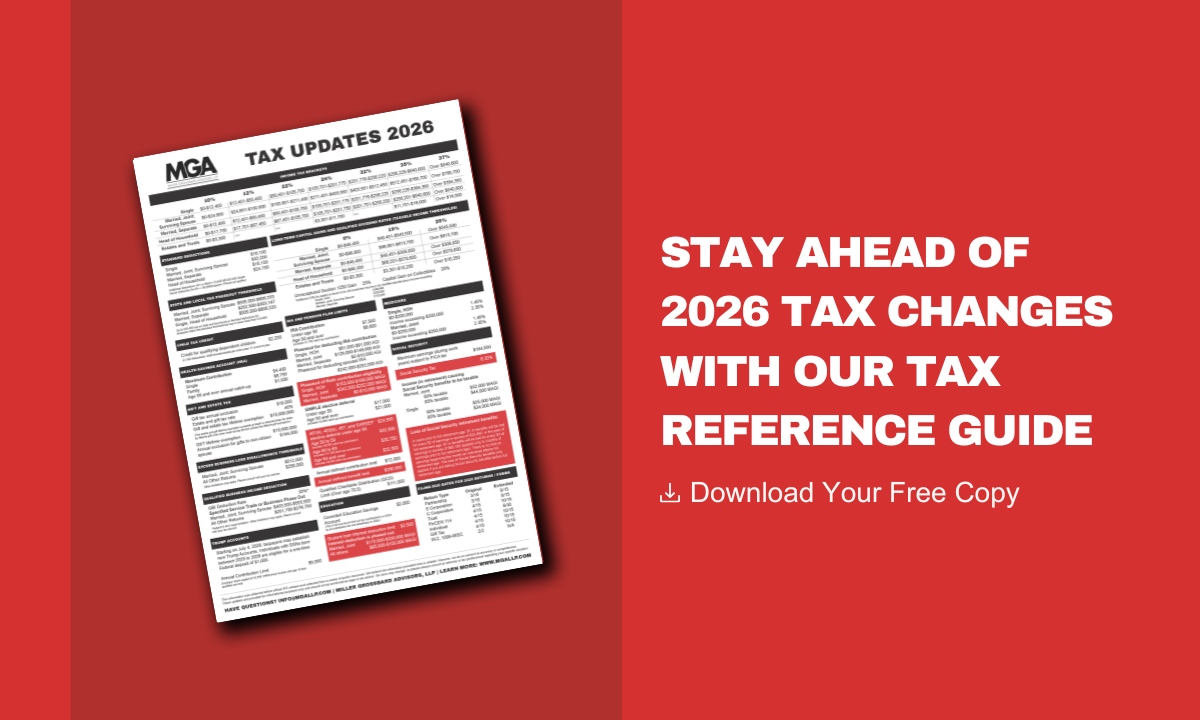The IRS issued final regulations regarding the substation and reporting requirements for cash and non-cash charitable contributions, which include a number of changes. Initially proposed in 2008, the final rules provide guidelines for individuals, partnerships, and corporations who make charitable contributions.
Our team at MGA is committed to providing you with clear, simple explanations of the very complex changes within the tax world, and in this blog, we explain the essential details of these new rules.
Cash and Noncash Contributions Must Comply with the Following Substantiation / Reporting Requirements:
- Taxpayers who make any donations of cash, check, or other monetary gifts (regardless of dollar amount) must maintain a record of each contribution made (bank record or written communication from the donee organization) that includes the date and amount of the contribution. Contributions of property require a receipt from the donee showing the donee’s name and description of the gift.
- Any contribution made (cash or property) of $250 or more needs written acknowledgment from the donee (canceled check or other bank record will not be sufficient).
- Noncash contributions
- For noncash contributions greater than $500 but not more than $5,000, the donor is required to attach a description of the contributed property to his/her tax return.
- For noncash contributions greater than $5,000 but not more than $500,000, the donor is required to obtain a “qualified appraisal” and attach it to his/her tax return information regarding the property and the appraisal (i.e., an appraisal summary).
- For noncash contributions greater than $500,000, the donor is required to attach the qualified appraisal to his/her tax return.
It is important to note that the reporting requirements for noncash contributions under points 1 and 2 above do not apply to certain categories of noncash contributions (including qualified vehicle donations). The IRS also has specific definitions on what is considered a qualified appraisal for the reporting requirements listed above. One last important detail to note is that, depending on the value of the noncash contribution, various parts of Form 8283 (Noncash Charitable Contributions) must be completed, and the form must be attached to the donor’s tax return. However, even a fully-completed Form 8283 may not be sufficient to comply with some of the reporting requirements mentioned above.
To Sum It Up
Among the many changes you will find new recordkeeping requirements for all cash contributions, detailed substantiation requirements for specified noncash contributions, and new definitions related to qualified appraisals.
These regulations are generally effective for contributions made after July 30, 2018, with the exception of the qualified appraisal and appraiser requirements. In order to not be denied a charitable deduction, we strongly encourage you to take these changes seriously and strictly follow the guidelines listed above.
Please note that these are only a few of the nuances of these final regulations. Our team at MGA is happy to visit with you to ensure you fully understand and are compliant with the final rules. Don’t hesitate to reach out to us today with any questions or concerns.
We are here to make the complex simple.
.png?width=191&name=mgalogofinal-01%20(3).png)





